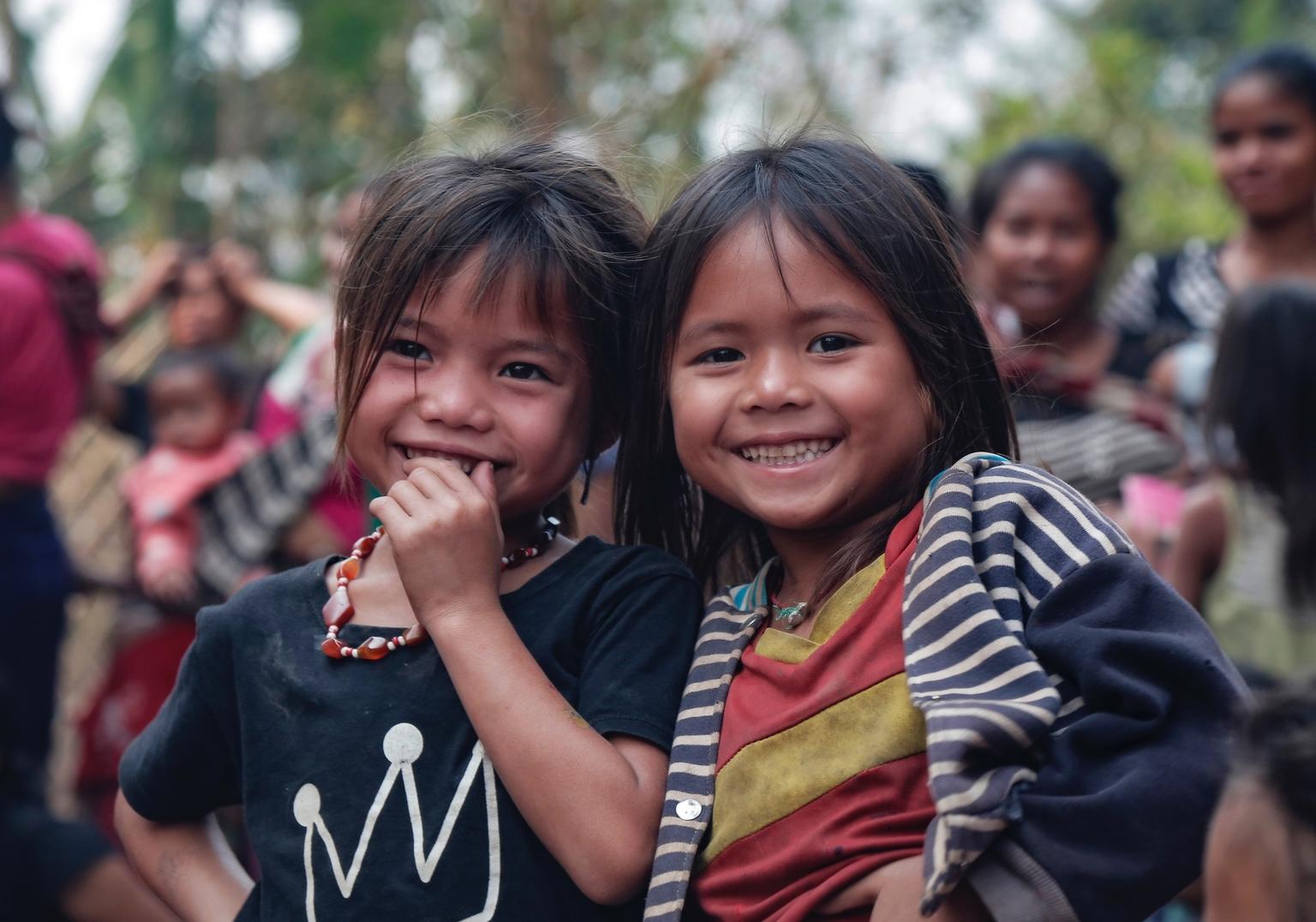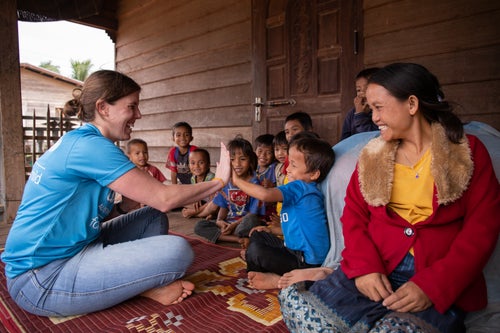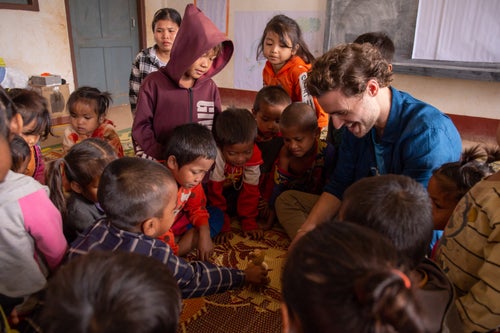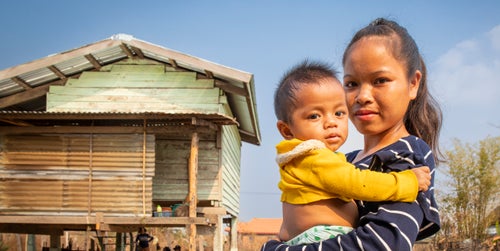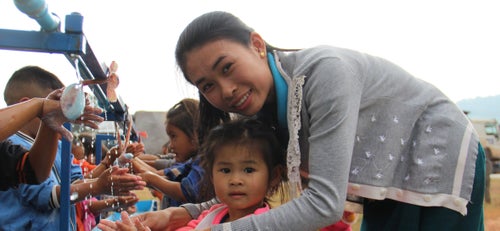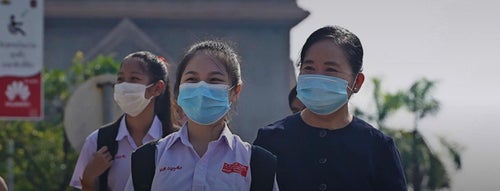We’re in Lao People’s Democratic Republic (PDR), delivering education, child protection and parenting programs.
Rich in culture and tradition, this wonderfully diverse and intriguing nation boasts a spectacular landscape and the youngest population within Asia. Yet, life for children and their families hasn’t always been easy. From urban centres to the remote villages, Lao PDR faces many challenges.
Sadly, over 70 per cent of children in Lao PDR experience multiple forms of vulnerability, including poor nutrition, limited access to education, clean water and sanitation, and harmful practices and violence. Lao PDR also has the highest under-five child mortality rate in Southeast Asia. This is mainly due to newborn complications, diarrhoea and pneumonia.
UNICEF has been in Lao PDR for over 45 years, working to make a difference to the nation’s most vulnerable. Since opening its economy in 2011, Lao PDR has made huge strides. The poverty rate, along with those for infant and under five mortalities has halved in a generation. But there is still a long way to go.
Located in Southeast Asia, Lao PDR borders China, Vietnam and Thailand.
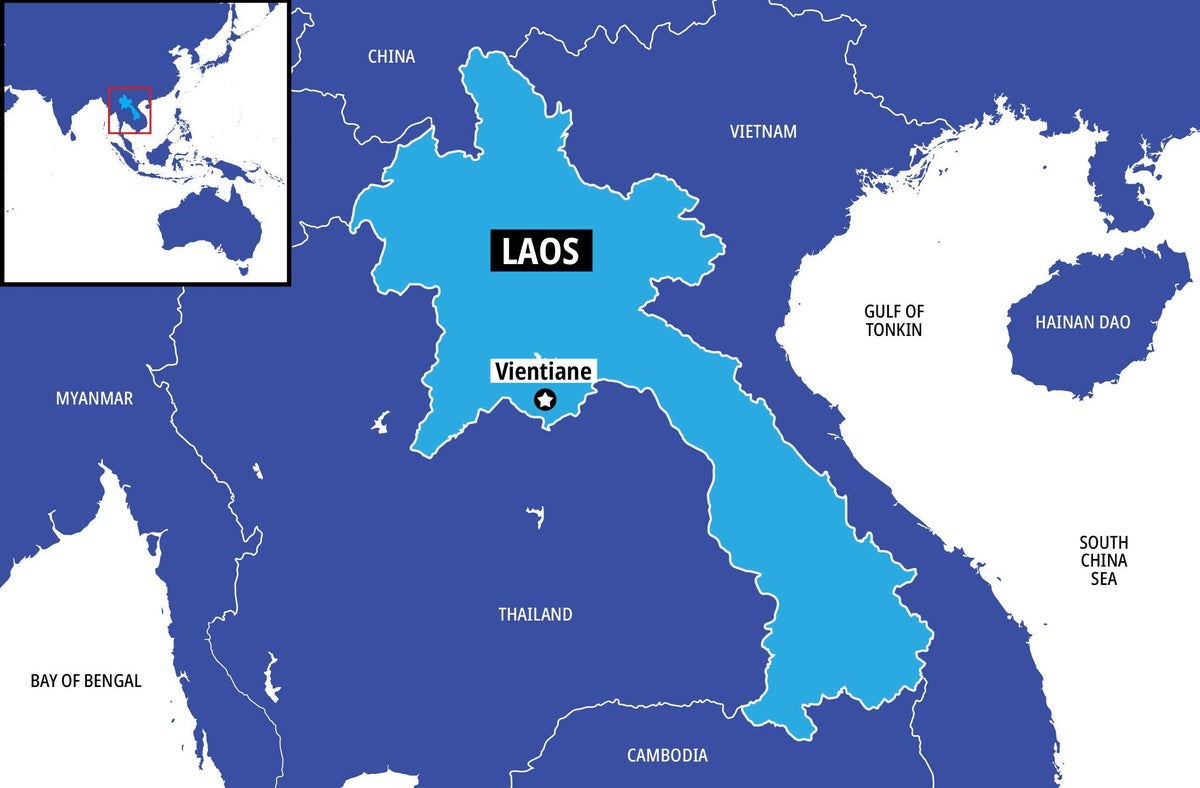
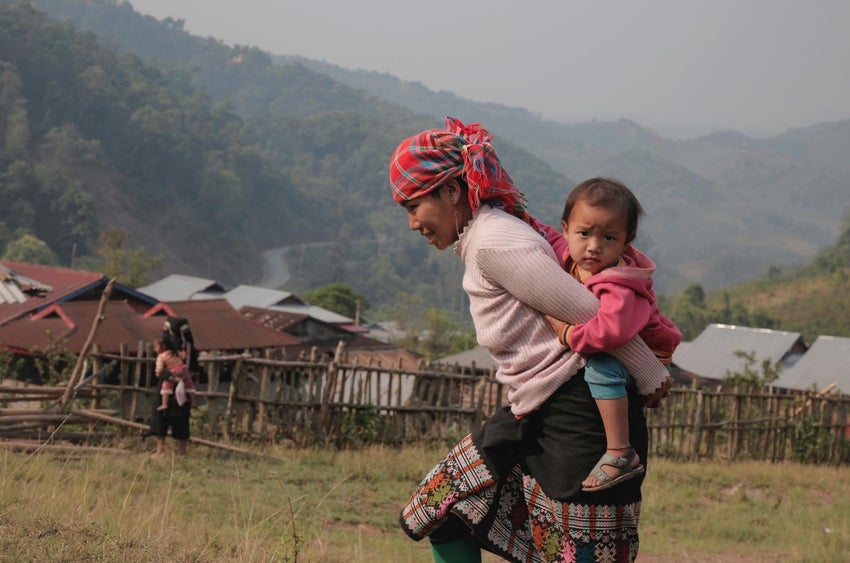
Lao PDR’s many challenges
Almost one fifth of Lao PDR’s population are living on less than AUD $1.20 per day as poverty remains a significant, ongoing challenge. It places vulnerable children at direct risk which include being forced out of school and into labour (often the worst jobs no-one else wants to do), physical and sexual abuse, child marriage, child trafficking and childhood incarceration in the country’s adult prison system.
Violence, abuse and exploitation of children are difficult to measure, as they are often hidden within families and communities, and exacerbated by gender inequity and marginalisation of the poor; particularly for the ethnic minorities living in remote mountain regions.
Lao PDR also faces challenges with equitable access to clean water and basic sanitation facilities, maternal and child health care. Plus, access to quality early learning is still significantly low with those in hard-to-reach areas and from poor families being the most excluded.
69%
of Lao PDR children aged 1-14 experienced some form of violent discipline in the last month.
32.7%
of women now aged 20-49 were married before they turned 18 years old.
How we’re protecting the rights of children in Lao PDR
From cash support programs to a national social protection strategy and early childhood education programs, UNICEF is on the ground in Lao PDR working with community and government partners to implement positive change for children and their families.
Over the years, we have successfully piloted new approaches to accelerate positive change for children and their families. Our work in Lao PDR is only possible thanks to the generous support of the Australian public and the Australian Government through the Australian NGO Cooperation Program (ANCP).
158
children with disability in Lao PDR received community-based care and referrals for services funded by UNICEF Australia since 2019.
16,371
children were provided with early learning education with funding from UNICEF Australia since 2018.
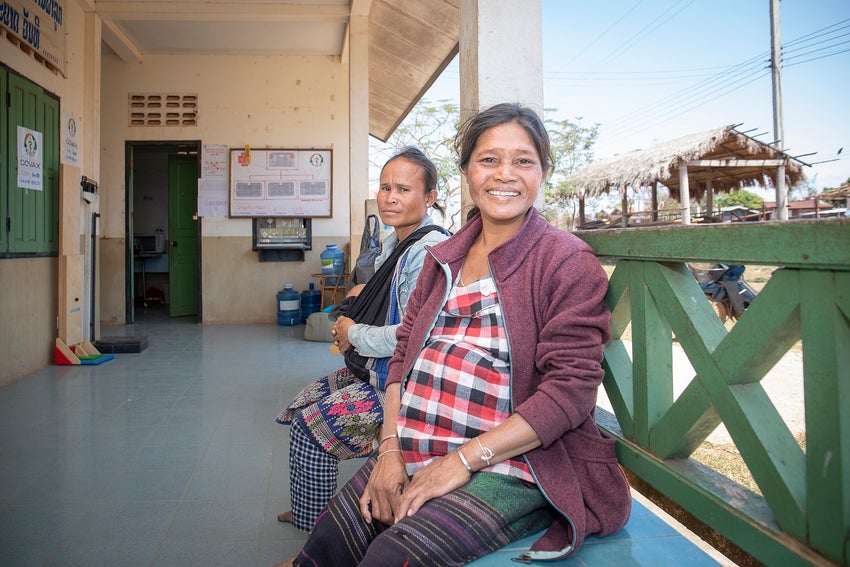
We’re redefining how we support new mothers
Khao, a pregnant mother of six, belongs to the small ethnic group of Bru people. When she was giving birth to her first child, Khao walked long distances with her husband into the jungle whilst having contractions. The tradition spans generations and is enforced by the community to ensure no bad luck is brought to a family. Khao stayed a week in the jungle, nursing her baby and waiting for her husband to bring food each day.
Khao had three children this way, until the local health centre was built – transforming women’s lives by supporting safe births in the community. Like most women in her village, Khao supports her family through farming. Their only source of food is from her small field and access to cash is limited. Her wages are often not enough to support her children. And giving birth means time away from work.
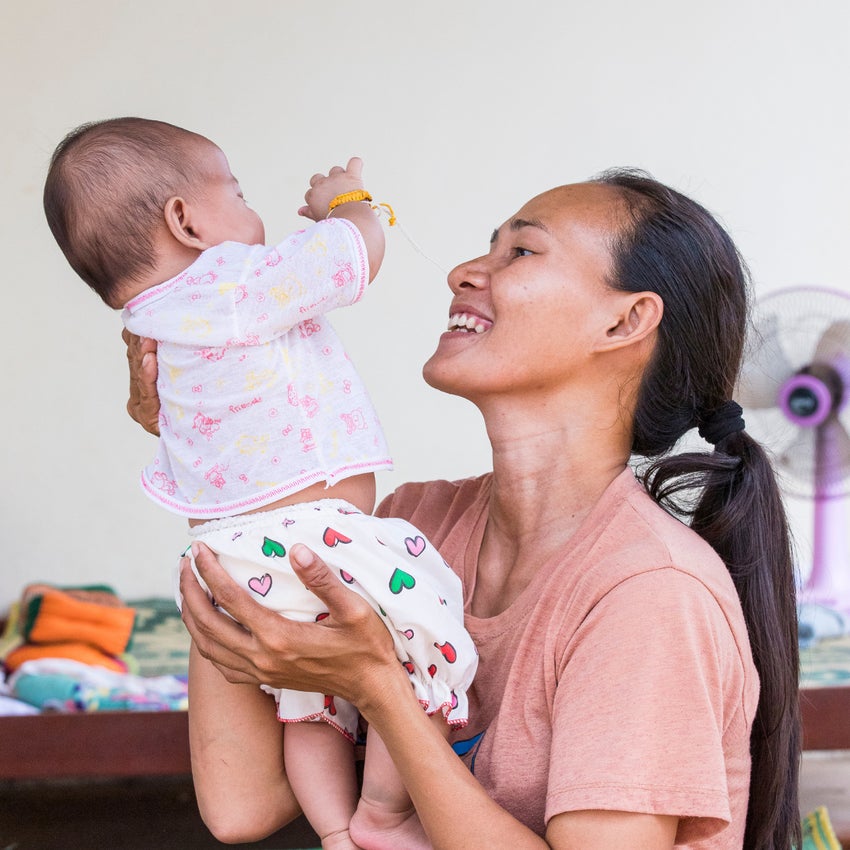
UNICEF-supported cash transfer program helping new mothers
Led by the Government of Lao PDR and supported by UNICEF Lao PDR in partnership with the Australian Government, the cash transfer program is a monthly payment of approximately $18 AUD, which is enough to support mums and bubs during pregnancy and the first few years of life.
For Khao and other mothers like Khampasong (picture here), this cash support guarantees enough money to buy nutritious food for their children. When provided with the resources to recover from birth without fear of survival, women like Khao and Khampasong can heal physically and provide proper care to their babies. The first 1,000 days of a child’s life are essential for development, with a baby’s brain building up to a million connections every second of their first few years of life. Through proper stimulation, bonding and nutrition, a parent can set the stage for a child’s ability to reach their full potential.
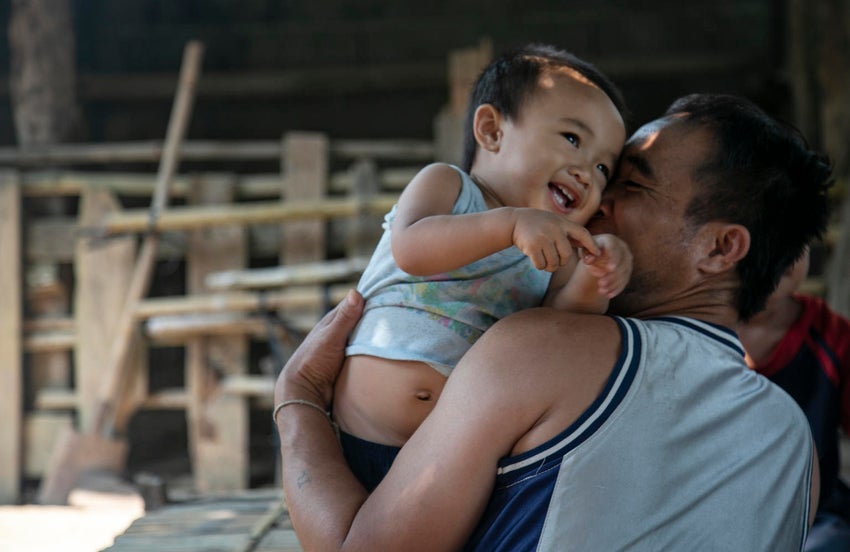
We're working to keep children safe from harm
"No child should be abused, neglected or subjected to violence. But in Lao PDR, for many children, it’s a daily reality," explains Tony Stuart, CEO of UNICEF Australia.
Today, there is a new vision for child protection in Lao PDR, initiated by the Lao PDR Government and for which UNICEF is a proud partner in implementation. A National Social Protection Strategy was launched in April 2020, which sees the commencement of a Five-Year National Plan of Action for Child Protection 2021-2025, and a new momentum to do better by the country’s children.
We’re supporting the delivery of high-quality services to villages so that children and families especially the most vulnerable have access to the support they need. We’re training frontline workers, judges, police, teachers and health workers and newly established Child Protection Networks to create a shared vision for keeping children safe at home and in the community.
In Lao PDR, we're making a difference in:
Help the children of Lao PDR
By donating today, you can help children like Titavanh to achieve her dream of one day becoming a teacher.
The impact of our work
Every child has the right to be healthy, educated, and live safe from harm.



